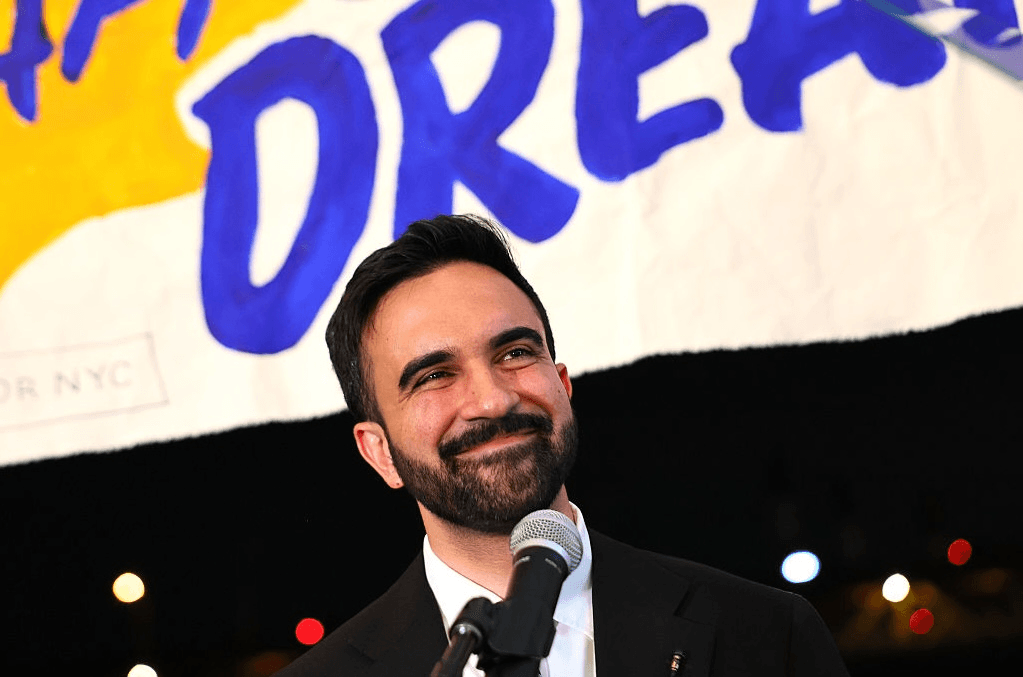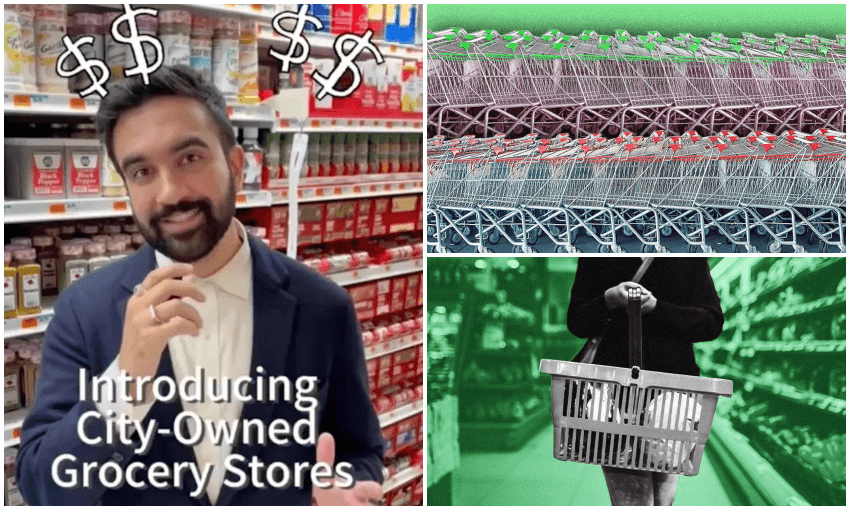While Nicola Willis fast-tracks new supermarket builds, New York mayoral hopeful Zohran Mamdani is campaigning for city-owned grocery stores. His message is simple: food is a human right – and New Zealand should take note.
The cost of living crisis continues to dominate the headlines. Polling shows that affordability is the top issue for voters, and one of the key factors is the price of groceries.
Food prices today are 30% higher than they were at the start of the decade. Despite being a food-producing nation, Aotearoa has higher food prices than the OECD average, and higher than Australia. Food inflation fell in 2024 after peaking in 2023, but the latest data from Stats NZ shows that prices are rising again.
The Commerce Commission, consumer advocacy groups and both the government and the opposition all agree that the disproportionate market share of the supermarket duopoly is the source of this problem, and that action needs to be taken to increase competition. Woolworths and Foodstuffs control 82% of the grocery market, rising to 88% outside of Auckland. The dominance of these two companies has allowed them to hike prices to maximise profits with minimal risk from competitors, in a phenomenon known by economists as “greedflation.”
Nicola Willis is pursuing market-based solutions to this problem. The economic growth minister announced on Wednesday that new supermarkets and builds will be fast-tracked in an attempt to boost competition. Her hope is that overseas companies, such as European multinationals Aldi and Lidl, will follow in the footsteps of Costco and set up shop in this country.
The New Zealand Initiative is claiming credit for Willis’s announcement, saying it is in line with the blueprint they have advocated for years. The NZI is a right-wing thinktank; its board members include executives and directors from Foodstuffs and Woolworths. Willis herself used to be an NZI board member. The duopoly appears to be proposing solutions to the problems it created.
Both companies have welcomed the minister’s planned reforms, with Foodstuffs saying Willis has “listened to the industry”. But consumer advocate Sue Chetwin from the Grocery Action Group has warned that prices won’t come down unless the duopoly is broken up. Dunedin brand Night n’ Day is doubtful the fast-track approach will work, with general manager Matthew Lane saying that the issue is competition, not lack of buildings.

Nicola Willis makes an earlier announcement on grocery competition, March 30, 2025. (Photo by Hagen Hopkins/Getty Images)
Why is the government trying to use market-based solutions to fix an issue caused by market failure? Why bring in foreign companies when we can solve this problem ourselves? Three corporate giants will hardly be better than two, especially for small towns and rural regions where the population is too small to support multiple grocery stores; three companies will still be able to collude to set prices artificially high.
The solution is not to bring in more competition from overseas. But we can look overseas for alternative ideas.
Zohran Mamdani is the Democratic Party candidate for mayor of New York City. The 33-year-old democratic socialist won an underdog victory in his primary election thanks to a campaign laser focused on one message: making New York affordable for everyone. One of Mamdani’s proposals is to create city-owned grocery stores.
New York may be the biggest city in America, but like New Zealand, ordinary people in NYC are struggling with the cost of basics – particularly housing and food. The city has areas known as “food deserts”, where access to food that is plentiful, affordable and nutritious is limited. In both NYC and Aotearoa, this is a problem particularly affecting low-income areas such as South Auckland, as well as rural areas.
Underlying this proposal is a basic principle: the necessities of life should not be subject to the whims of the free market. Everyone, rich or poor, urban or rural, deserves the ability to eat well. It is a human right.

Democratic mayor hopeful Zohran Mamdani platform includes a pilot programme to put city-owned grocery stores in ‘food deserts’. (Photo: Michael M. Santiago/Getty Images)
The free market has failed to deliver affordable, healthy food. The prevalence of this problem in a city like New York proves that the problem is not the New Zealand supermarket duopoly, but the market itself. It’s time for the government to step in and establish a state-owned, not-for-profit grocery chain to supply the most in-need areas with affordable groceries. If successful, this chain could expand beyond rural and low-income areas to supply the whole country.
Limited competition in a country as small as NZ was a problem in our banking sector in the 1990s. The solution to this problem offered by the Alliance Party, and implemented thanks to its coalition deal with the Clark government, was a publicly owned bank to increase competition and decrease our dependence on foreign corporations. Kiwibank was created thanks to Anderton’s work. The same model can be applied when it comes to food.
The success of Kiwibank has been limited by its size – its market share is only 9% – and by the fact that it has been run as a state-owned enterprise competing in the market like any other business, rather than functioning as a public service. To succeed, publicly owned food stores will need funding and support from the government to match the ambition of the project, and they will need to be run as part of a public service catering to the needs of the community, rather than attempting to generate a profit for the state.
It is not often discussed, but recent food price inflation has partially been caused by the climate crisis. Global warming has disrupted supply chains, resulting in price shocks such as the recent rise in coffee prices. As the planet continues to get warmer and extreme weather events become more common, crop yields will be threatened. Food price shocks are about to become a common feature of the global economy.
Consumers will not be able to absorb these price shocks easily. People are struggling enough as it is with the current cost-of-living crisis. Publicly owned food stores will be able to keep prices stable at an affordable level, especially for the most essential and nutritious items.
Aotearoa is a small country with a small market. More competition from multinational corporations will do little to bring down grocery prices. We must admit that the market has failed to deliver affordable, nutritious food. A public grocery provider is the solution, based on the principle that to eat a healthy meal is a universal right, not a luxury.
